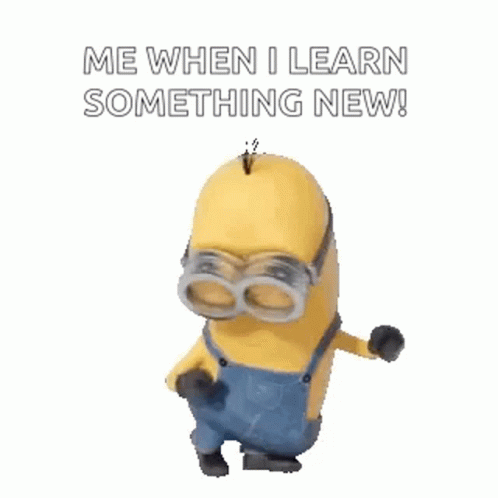Weekly Prompt #38: What are some things you've learned about yourself through experiencing anxiety?
Hello all and welcome back to another discussion,
A couple of weeks ago, we discussed: Add your worry to this Worry Jar! Thank you to all who participated and shared your thoughts with us. I appreciate you all. I hope all who may read it find it relatable too. If anyone hasn't shared yet, please share them here and I look forward to reading and discussing them with you.
This week's prompt: What are some things you've learned about yourself through experiencing anxiety?
Anxiety can be challenging to navigate but have you wondered if it taught you something as well? Maybe helped you become self-aware of something, helped you learn one or two things to deal with your anxiety, how you view the world and events, etc. Let us know your learning and insights here with us
I am looking forward to hearing your thoughts and experiences!

I'm not in a mood to talk well about myself. I think I learned that even in worse situations, I'm capable of do something small that can improve the situation in the future, such as sending a simple text message to a loved one when I'm stressed, or using pens and painting in my arm during crisis instead of self-harming. I think that could be a thing I learned
@ASilentObserver
Ive been able to identify some of my anxiety triggers and Im tryingto figure out how to deal with them
@yellowSummer8722 this is good. Identifying triggers is a big step. How do you feel now that you have identified them?
@ASilentObserver
I feel more in control which is good I just need to figure out how to calm my anxiety
@ASilentObserver
I learned that I need to pause and then react.
I also learned
Fear is a craving for safety. A mind that is dominated by fear is a mind that is still on survival mode
My anxiety is fear and past experiences
@ASilentObserver
Anxiety and panic attacks are new to me at 54 yrs old. I have learned that I start to feel better when I have a process of research analysis to understand the source of the anxiety. For example, learning about how menopause may be contributing to anxiety and panic attacks.
Anxiety has made me a bit more in tune with my body and its responses. Unlike my original anxiety I am now aware before it can become "full-blown" and I have also learned to "stay in the moment" and out of my head. Overthinking can be one of the biggest triggers of anxiety.
@agreeableShade4304 it is good that you have developed awareness of your anxiety and can recognize when it is building up. Being mindful of your thoughts and staying present can help manage it. What do you think might contribute to you feeling like you're having trouble sleeping?
@ASilentObserver Thats a good question, I am not sure what is contributing to the feeling that I am having trouble sleeping. I do know that many times I fall asleep in front of my computer becuase I'm usually on the internet before I normally go to bed. And then I usually wake up a few hours later and then crawl into bed but it just seems like I am not getting the sleep I should be. A good example is a few minutes ago, I crawled into bed with the tv on and then i got the sensation I was falling and here I am.
@ASilentObserver
that I can never sleep while I'm anxious, although I might be able to control any panic attacks and control my thinking, but I always fail to sleep when I feel anxious.
@KiminoSuizouwoTabetai Feeling anxious makes it difficult to fall asleep. Have you noticed anything that helps you relax before bed?
@ASilentObserver
to be honest, I've never been any good at coping with it. but I think something I do is talk to AI to analysis everything logically to see if my worries are actually logical or not.
@ASilentObserverSo, I just gotta share this with you all. I bought this book called Faith, Love, and Depression and, man, it was a total game-changer for me. I've been struggling with depression for a while now, and nothing seemed to really help. But this book? It was like a lifeline.
The way it talks about using faith and love to combat those dark days is just so real and relatable. It's not just fluff—it gives you real, actionable steps and a whole new perspective. I actually started feeling hopeful again, and for the first time in a long time, I felt like I could see a light at the end of the tunnel.
If you're dealing with depression or just feeling really down, you need to get your hands on this book. Trust me, it made a huge difference for me, and I think it could do the same for you. 📚💪❤️
https://www.amazon.com/dp/B0D9B7ZBFG
@ASilentObserver that I have been denying a lot of emotional trauma I grew up with. That I need to accept my feelings and not shame myself.
@specialOcean45 It seems like accepting your feelings and stopping self-shaming is important to you. How do you think not shaming yourself might change things?
@ASilentObserver makes it easier to process the feelings and overcome it
@ASilentObserver
One of the biggest lessons was realizing that focusing on the present helps more than worrying about what might happen. When I concentrate on what’s happening right now and use simple techniques like deep breathing, it really makes a difference. It’s about understanding that feeling anxious is normal and taking things one step at a time can really help.
@ASilentObserver
Ive learned that OCD makes it worse
@yellowSummer8722 It sounds like you have gained insight into how OCD contributes to your anxiety experience. How has understanding this connection helped you?
I think helping my ocd will also help my anxiety a lot